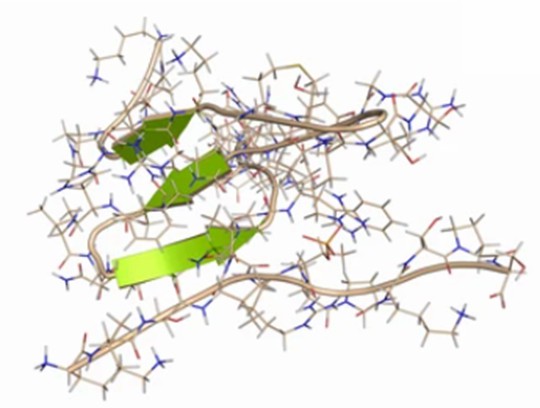-
- Development of Small Molecule Drug for Stroke
- Targeted Stroke Drug Development
- Stroke Drug Development Targeting Noncoding RNAs
- Stroke Drug Development Targeting PSD-95
- Stroke Drug Development Targeting Tau
- Stroke Drug Development Targeting Heat Shock Protein 70
- Stroke Drug Development Targeting Notch
- Stroke Drug Development Targeting Guanosine
- Stroke Drug Development Targeting Nogo-A
- Stroke Drug Development Targeting Nrf2
- Stroke Drug Development Targeting DAPK1
- Stroke Drug Development Targeting AMPK
- Stroke Drug Development Targeting Caveolin-1
Stroke Drug Development Targeting Cell Death- Stroke Drug Development Targeting Ferroptosis
- Stroke Drug Development Targeting Pyroptosis
- Stroke Drug Development Targeting Necroptosis
Stroke Drug Development Targeting Different Cell TypesStroke Drug Development Targeting Other Components- Stroke Drug Development Targeting Mitochondria
- Stroke Drug Development Targeting Autophagy
- Stroke Drug Development Targeting Epigenetic Mechanisms
- Stroke Drug Development Targeting Blood Brain Barrier
- Stroke Drug Development Targeting Excitotoxicity
- Stroke Drug Development Targeting NMDAR
- Stroke Drug Development Targeting The GluN2B Subunit of NMDAR
- Stroke Drug Development Targeting Glutamate
Stroke Drug Development Targeting Tau
Current studies have demonstrated that tau is involved in regulating the pathology of stroke through multiple pathological pathways, such as oxidative stress, neuroinflammation, excitotoxicity, autophagy, and mitochondrial dysfunction. These findings suggest that modulation of tau is a potential therapeutic pathway for stroke. However, there are few studies on the development of stroke drugs targeting tau. Ace Neuroscience offers a range of services, from screening potential stroke drugs targeting tau and the pharmacological evaluation of drug candidates, to data analysis. Our goal is to facilitate the development of your stroke drug targeting tau.

High Throughput Screening of Tau Inhibitor
The current study found that stroke leads to elevated levels of total tau in human cerebrospinal fluid. And a combination of different studies found that inhibition of tau expression would in turn ameliorate stroke by modulating pathological pathways such as oxidative stress, excitotoxicity, angiogenesis, and mitochondrial dysfunction. Therefore, we first obtain tau inhibitors by high-throughput screening and then evaluate their pharmacological activity against stroke. In view of this, Ace Neuroscience has established a sophisticated screening service platform for tau inhibitors.
- We have an ultra-large small molecules library, including compound libraries, natural product libraries, and fragment libraries.
- We have established a high-throughput screening platform for tau that can screen tens of thousands of compounds at scale.
- We have established different in vitro and in vivo models of tau expression abnormalities by drug administration and genetic manipulation to validate the inhibitory effect of tau inhibitor candidates.
Preclinical Evaluation of Drug Candidates for the Treatment of Stroke
We have demonstrated the inhibitory effect of tau inhibitor candidates on tau. Immediately after, we offer various pharmacological activity evaluation services to test the therapeutic effect of candidate tau inhibitors on stroke.
- We have established different in vitro and in vivo stroke models to validate the therapeutic effect of tau inhibitors on stroke and to further explore the mechanism of tau action.
- We have established in vitro and in vivo models of oxidative stress, apoptosis, autophagy, excitotoxicity, inflammation, and mitochondrial dysfunction to explore the specific roles played by candidate inhibitors under these different pathological conditions.
- For tau, we provide detection and quantification of Tau aggregates in brain tissue to accurately assess the mechanism of tau action.
- For tau downstream genes or proteins, we provide different expression level assays and localization services to further explore the role of candidate inhibitors in stroke development.
Regarding other directions of targeting tau to develop stroke drugs, such as tau aggregation blockers, we also offer complete drug development services. If you would like to learn more about our services, please feel free to contact us.
References- Chen, X. Jiang, H., Tau as a potential therapeutic target for ischemic stroke. Aging (Albany NY), 2019. 11(24): p. 12827-12843.
- Pluta, R., et al., Tau protein dysfunction after brain ischemia. J Alzheimers Dis, 2018. 66(2): p. 429-437.
All of our services are intended for preclinical research use only and cannot be used to diagnose, treat or manage patients.Related Services- Stroke Drug Development Targeting Noncoding RNAs
- Stroke Drug Development Targeting PSD-95
- Stroke Drug Development Targeting Heat Shock Protein 70
- Stroke Drug Development Targeting Notch
- Stroke Drug Development Targeting Guanosine
- Stroke Drug Development Targeting Nogo-A
- Stroke Drug Development Targeting Nrf2
- Stroke Drug Development Targeting DAPK1
- Stroke Drug Development Targeting AMPK
- Stroke Drug Development Targeting Caveolin-1
Ace NeuroscienceWe are committed to accelerating progress in stroke research and drug development.
Connect with usCopyright © Ace Neuroscience. All rights reserved.0Inquiry Basket